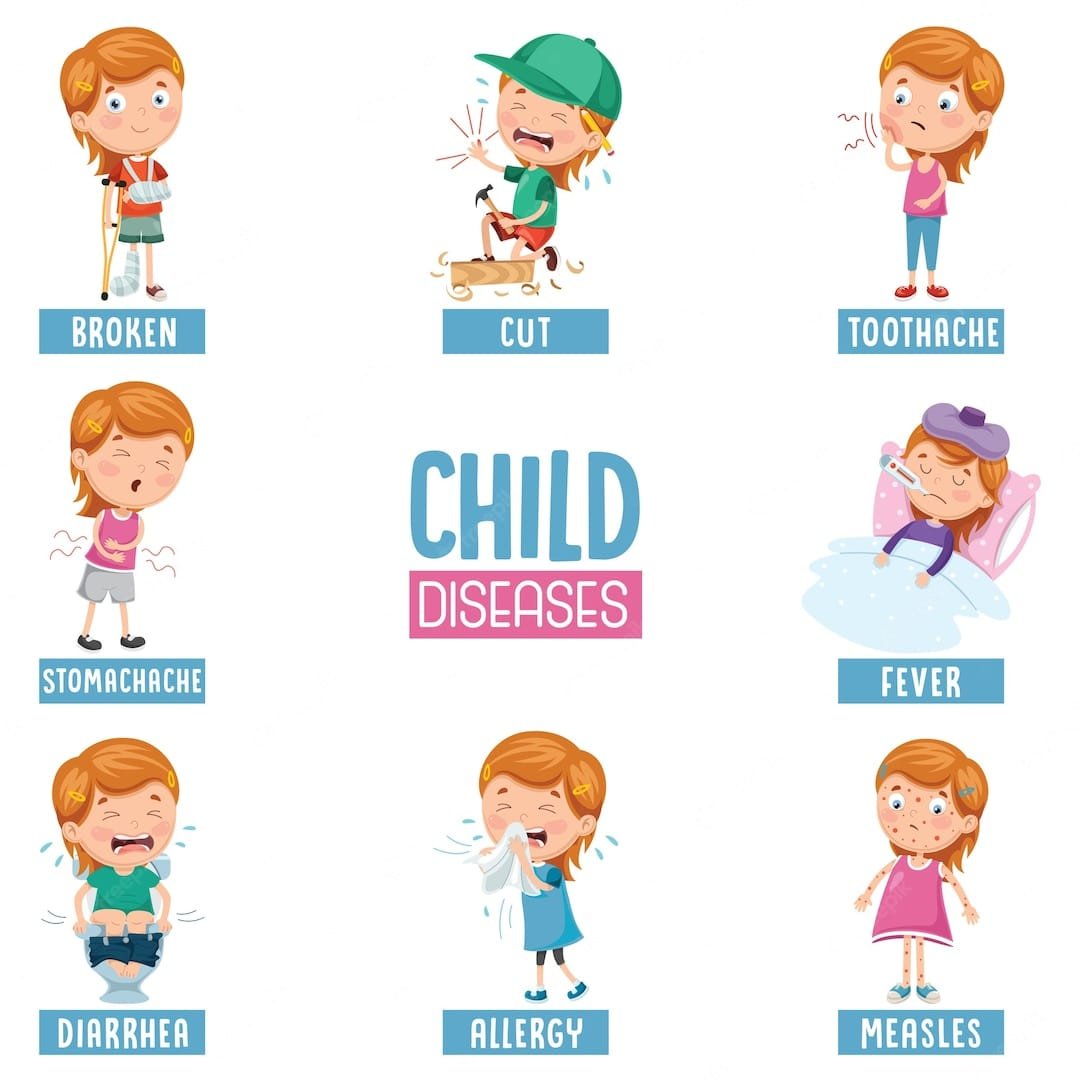- Teething Troubles-Swollen, tender gums. Fussiness and crying. A slightly raised temperature (less than 101 F) .Gnawing or wanting to chew on hard things,Diarrhoea,
- Bed Wetting-Nocturnal enuresis is involuntary urination that happens at night while sleeping. There are two kinds of enuresis- Primary Nocturnal Enuresis and Secondary enuresis
- Appetite-Loss of appetite can occur from sore throat, fever, nausea, vomiting, or changes in a food’s taste or smell that may make a child not feel like eating. If illness is not the cause of the appetite loss, there are several other reasons why your child may not be eating. This may include: Your child is eating between meals.
- Diarrhoea-Diarrhoea is frequent loose or watery bowel movements. Diarrhoea may be accompanied by anorexia, vomiting, acute weight loss, abdominal pain. Diarrhoea is a very common pediatric concern,
- Vomiting-Vomiting is the body’s way of getting rid of harmful substances from the stomach, or it may be a reaction to something that has irritated the gut. One of the most common causes of vomiting in adults is gastroenteritis. This is an infection of the gut usually caused by bacteria or a virus
- Underweight-Failure to thrive (FTT) is a term that is traditionally used for children who have failed to develop and grow normally.There are many possible causes of FTT, such as poor appetite, poor diet, or a medical problem.
- Height-Growth problems can be caused by a number of factors, including genetics, hormonal disorders, systemic illnesses, and poor absorption of food. Causes of growth problems usually fall into the following categories: familial short stature, a tendency to follow the family’s inherited short stature (shortness)

